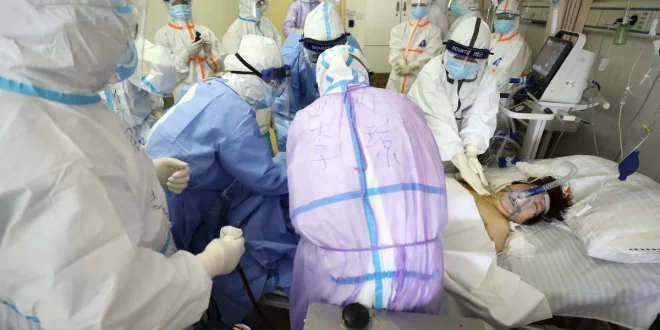Melbourne. On 11 March 2020, the World Health Organization declared COVID-19 a global pandemic. Even after three years, there has not been much change in the condition of Corona. Even today, fear remains in the mind regarding Corona. Talking about India, Kovid had knocked here in January itself, although it was not named as an epidemic then. But how bad has it really been? And, more importantly, what have we learned that can help us accelerate its real and sustained exit?
According to a report, the virus has hit the world very hard. So far there have been more than 68 crore infections and more than 68 lakh deaths. These figures show how Corona has caused devastation in the whole world so far. This epidemic started from China. Its impact on life can be well understood by its impact. 2020 and 2021 saw a sharp decline in life expectancy worldwide, which had been rising uninterrupted for the last 70 years.
Not just covid deaths, depression too
The excess mortality caused by this decline in life continues. This includes Australia, where more than 20,000 people are expected to die in 2022 above the historical average. The indirect impact on health systems continues to be substantial in rich and poor countries alike. Disruption in health services has led to an increase in still births, maternal mortality and postpartum depression.
long covid hit
Meanwhile, more evidence of long-lived Covid has emerged around the world. At least 65 million people were projected to experience this debilitating syndrome by the end of 2022. The Australian Institute of Health and Welfare estimates that 5–10% of people infected with SARS-CoV-2 develop prolonged COVID, with symptoms lasting more than three months.
Covid exposes inequalities
The pandemic has also had a huge economic impact both directly and indirectly. America alone spent four trillion dollars on its response. Economists have estimated that the pandemic will be responsible for an average of 0.75% reduction in GDP in 2025 in countries with high infection rates and high productivity. Studies in the UK, US and Australia show that disadvantaged communities and ethnic minorities have been disproportionately affected by Covid – including higher mortality rates.
In Australia, since the beginning of January, more than 235,000 Covid cases have been recorded, almost as many as in 2020 and 2021 combined. Since the beginning of January, there have been 2,351 Covid-related deaths, which is more than double the number for the whole of 2020 and almost the same as for the whole of 2021.
1. Politicians need to speak up
Our political leaders need to openly communicate with the public that the pandemic is not over. They need to emphasize that we still have an extraordinary problem to worry about in the form of chronic illness as well as prolonged Covid. If our politicians did this, the public would be more likely to get their booster vaccines, get tested and treated, and adopt measures like improving indoor ventilation and wearing high-quality masks. The health system also needs to be greatly strengthened to deal with prolonged covid.
2. It is still important to avoid infection
It is still necessary to suppress the virus. We can still reduce the burden of new covid and therefore, reduce long-lasting covid. We have the tools to do this. We need to fully accept that Kovid spreads largely through the air. As discussed in this recently published article in the journal Nature, there are things we can do now to make sure we all breathe safe air, which contains SARS-CoV-2 as well as other viruses. Don’t even have a virus.
3. Embrace new knowledge and technology
We must focus on science and be ready to rapidly adopt new knowledge and products. A few days ago we tested a promising new approach to treat long-lasting Covid with the diabetes drug metformin. There is also intriguing research that has identified persistent infection as a possible underlying cause of organ damage and disease following covid and prolonged covid. This suggests that anti-viral drugs such as paxlovid may have an important role in reducing the effects of chronic disease. A variety of new Covid vaccines are being tested, such as a nasal spray, which could be a game changer.
 Indian Thought Latest News & Views
Indian Thought Latest News & Views



